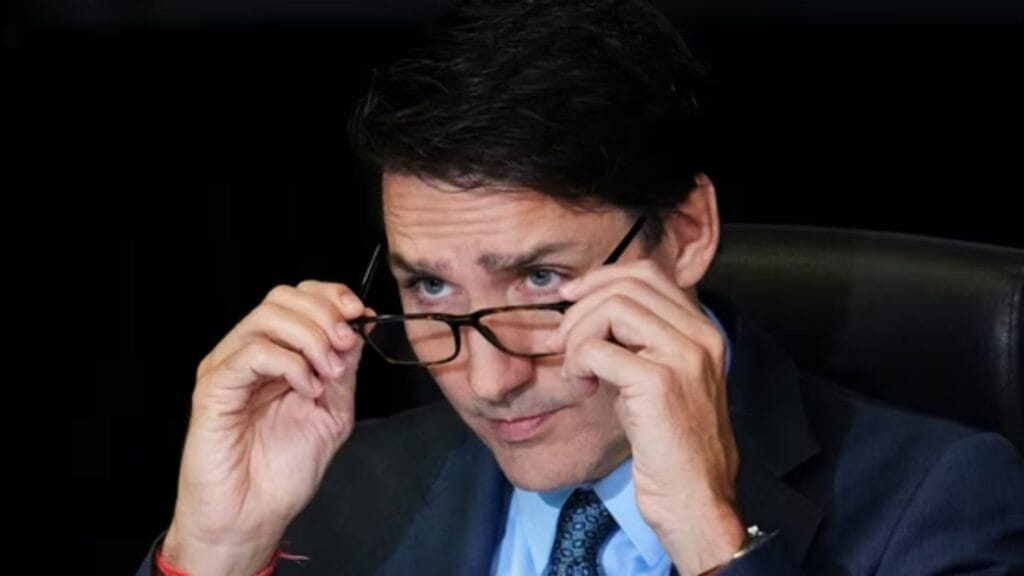Canadian Prime Minister Justin Trudeau is again in the headlines, this time seeking re-election for another term as head of the Liberal Party. This time, though, he faces opposition from inside his ranks. The 20 of his MPs asked him to step down recently. He, however, has resolved to move ahead with his plans, saying he’s enjoyed the “support of the vast majority” of the Liberal Party’s 153 members in the House of Commons. His decision has, however, become the subject of much debate within his party and across Canada.

Trudeau who has been leading the country since 2015 is now gunning for a fourth consecutive term. A victory would also make him the first Canadian leader in over a century to win four terms consecutively. That’s a big task, particularly as you consider recent battles his government has fought, including a dip in popularity and a hard loss in two of the country’s biggest districts, Toronto and Montreal, during special elections recently held. These losses have sparked renewed debate among Liberals as to whether it’s time for Trudeau to hand over the reins.
ALSO READ | Justin Trudeau Gets an Ultimatum for Resignation by October 28 from His Party MPs
Dozens of Liberal MPs asked Wednesday during a three-hour meeting for Prime Minister Justin Trudeau to resign ahead of the next election, opening a potential door for a new leader. In this case, MP Sean Casey said his constituents were dismayed that Trudeau didn’t take their plea seriously. While Trudeau “listened,” he wasn’t “swayed,” said Casey, and he made clear that he would move forward as the Liberal leader. Casey said that despite his reservations, the decision now lies with Trudeau, and “This was a decision he had every right to make and he made it.” In other words, Casey tried to relay the mood in his community but has now resigned to focus on his seat rather than getting entangled in party disputes.
Now here’s where I think Trudeau’s strategy might be problematic. For one, the political terrain is far from what it was when he first took office. Today, the Liberals have to rely on the support of other key parties to hold ground in Parliament. This lack of a majority puts them up for more risk and would even probably result in early elections should things not go as planned. Indeed, the head of the Bloc Québécois has already threatened to enter into an opposition coalition with the Tories and the New Democrats to bring down the Liberal government unless they agree to increase pensions, a move that could prove disastrous for Trudeau’s leadership.
ALSO READ | Trudeau Broke Canada, Now He’s Breaking the English Language
Adding to this pressure, recent polls say Liberals are now behind the Conservatives. Latest numbers from Nanos put the Conservative Party ahead with 38%, while the Liberals trail at 25%. Not exactly a vote of confidence for Trudeau’s re-election chances. And, frankly, the geopolitical tension between Canada and India doesn’t help matters either. Trudeau’s recent posture toward India has brought relations to a rabid low—a stance, I believe, could go badly against trade and diplomatic interests alike. Cutting ties with a major partner like India would prove to be a questionable move and would further isolate Canada on the international scene. This strained relationship makes me believe that is wrong, but a step in the right direction.
It’s a good thing, perhaps, that he is digging in and getting entrenched as a leader because, with the next federal election probably up ahead, the step proves a lot of resilience but still is a risk on his part. He takes declining poll numbers, internal doubts, and shaky alliances in Parliament with him. Only time will tell if Trudeau’s leadership confidence can hold up to these trials, but for now, he’s all in, ready for what’s sure to be the next big battle, which is at the polls.
Minutes by M31GlobalNews






